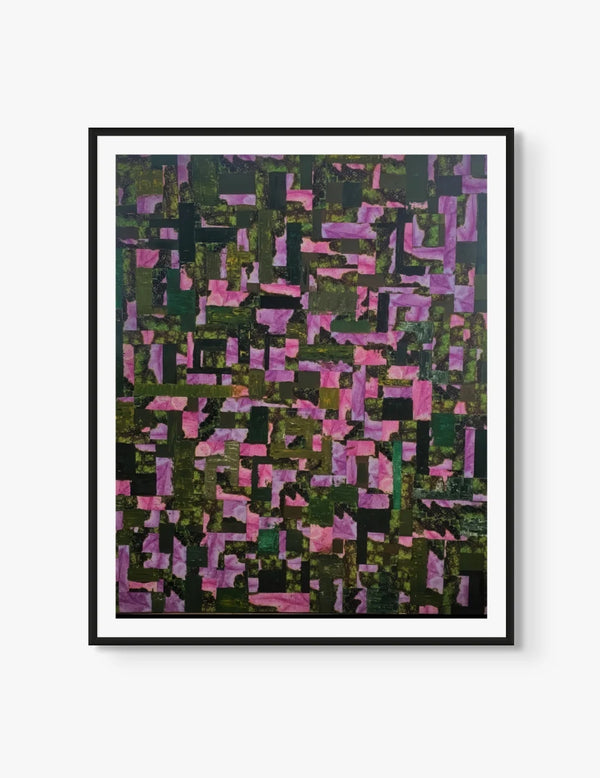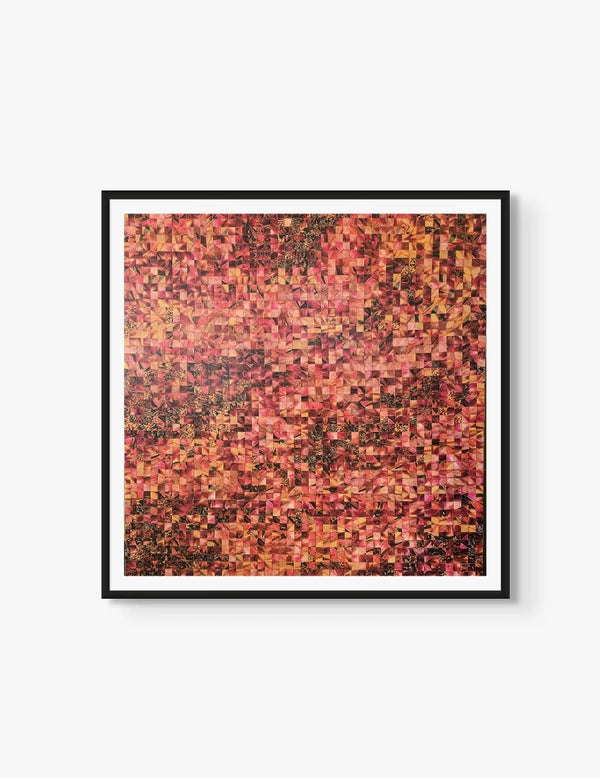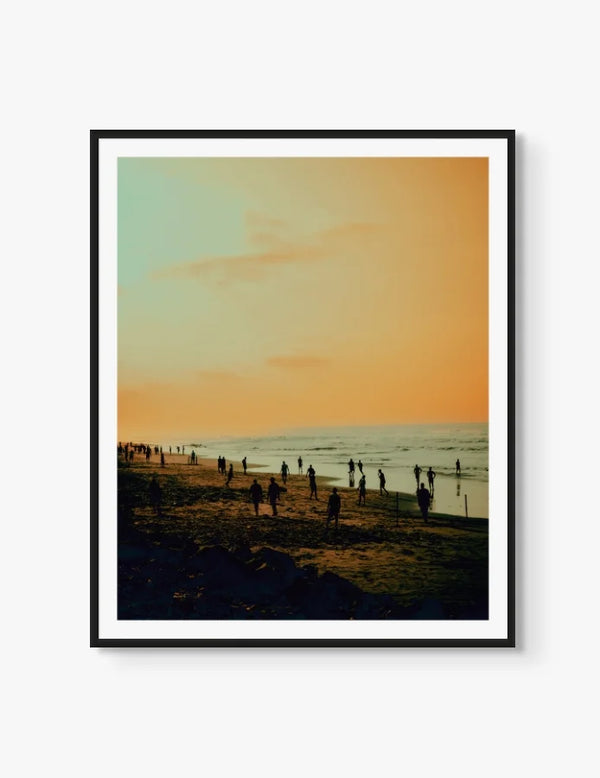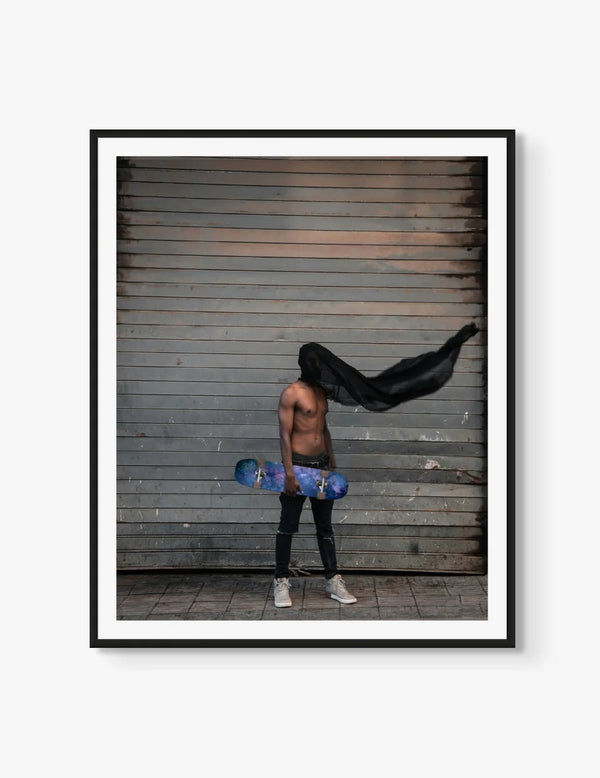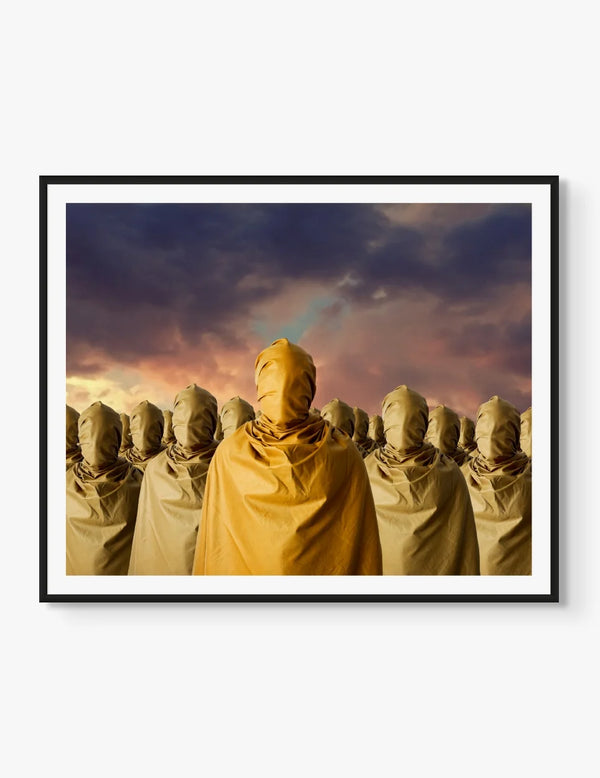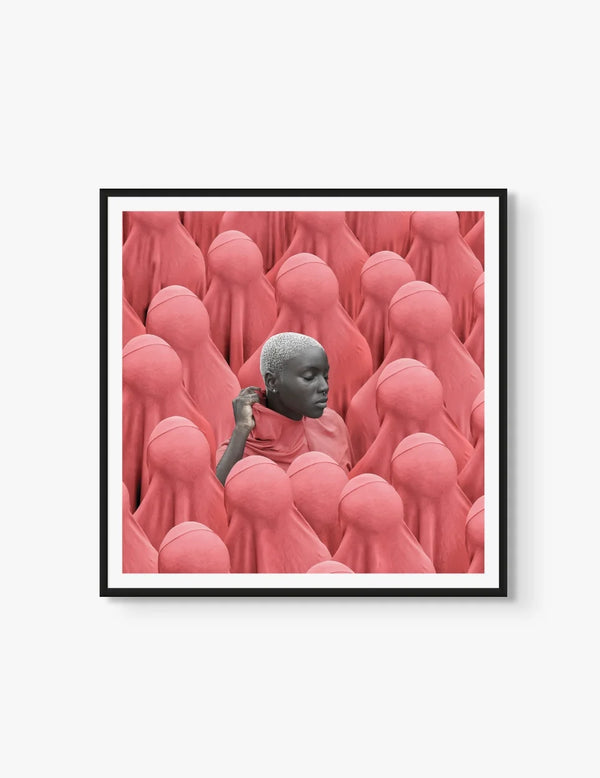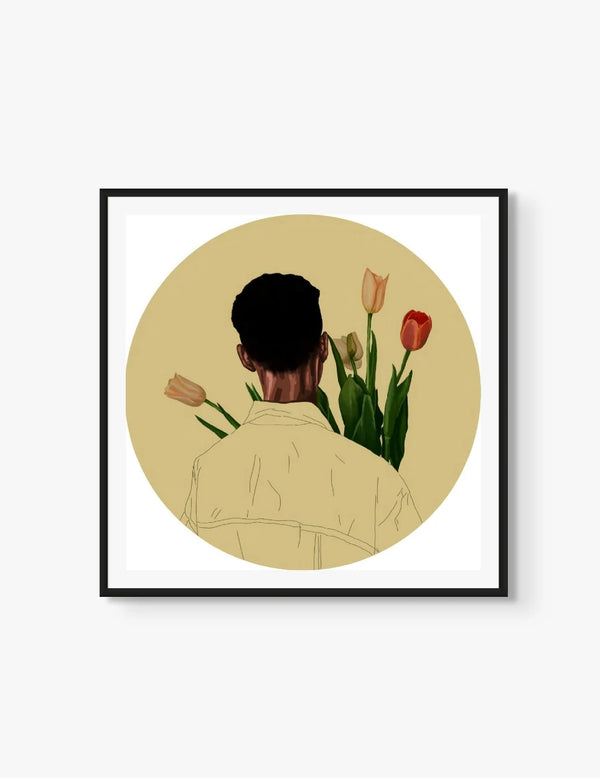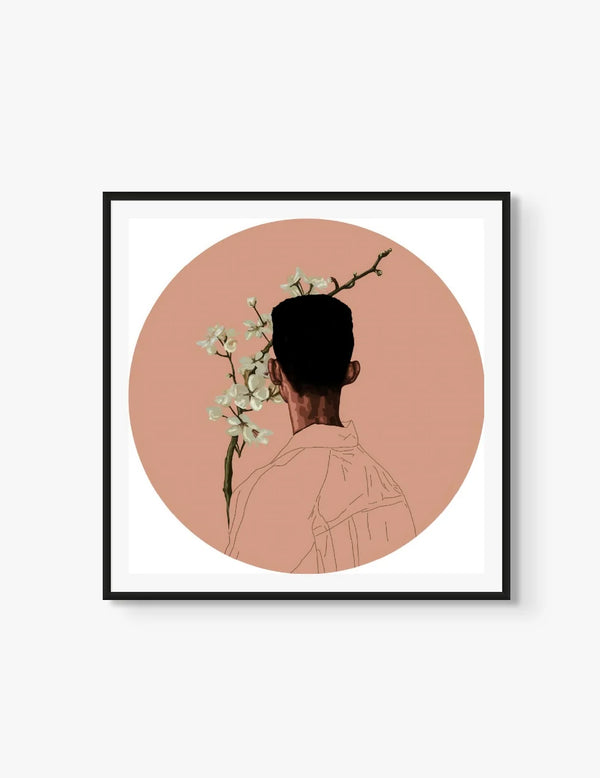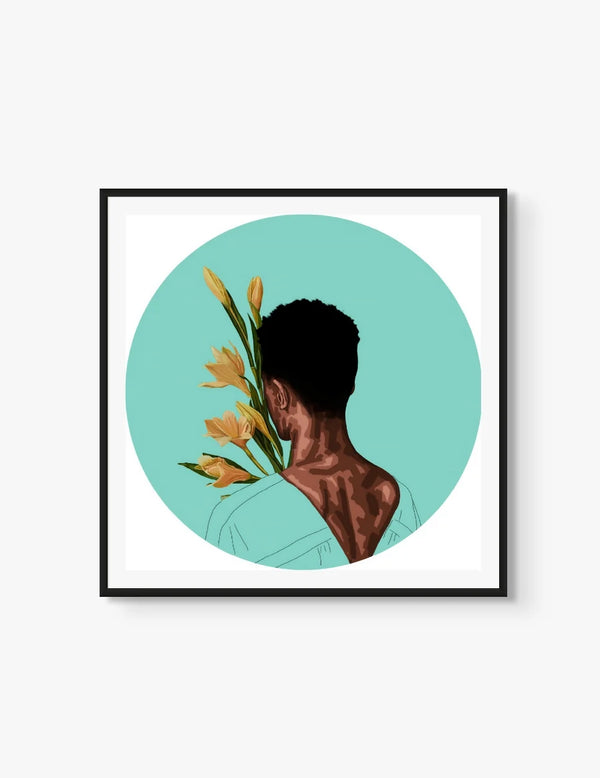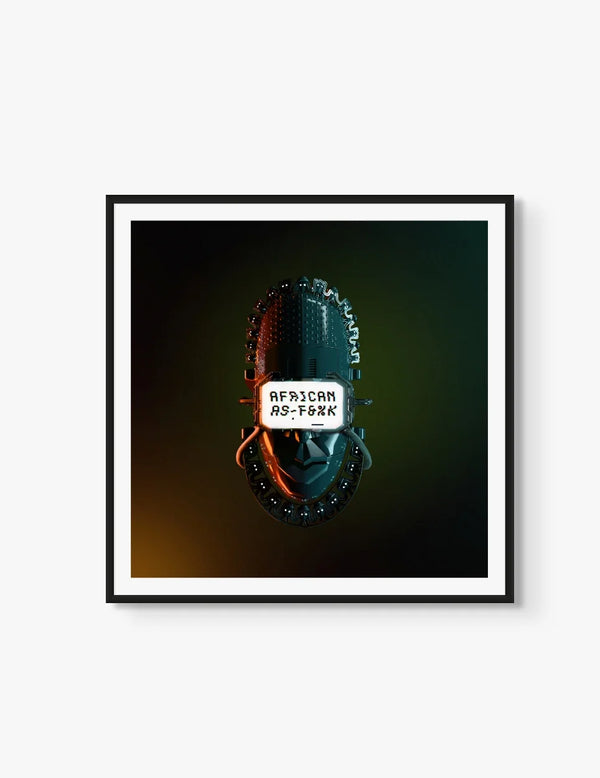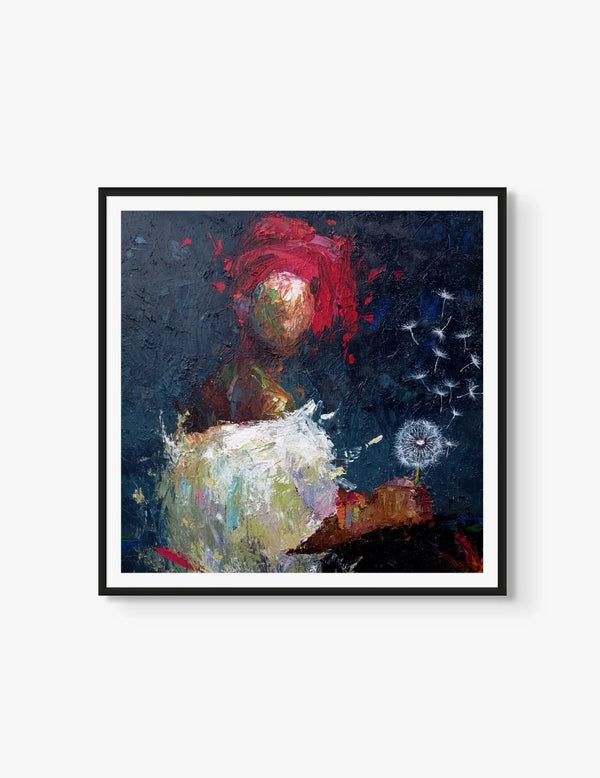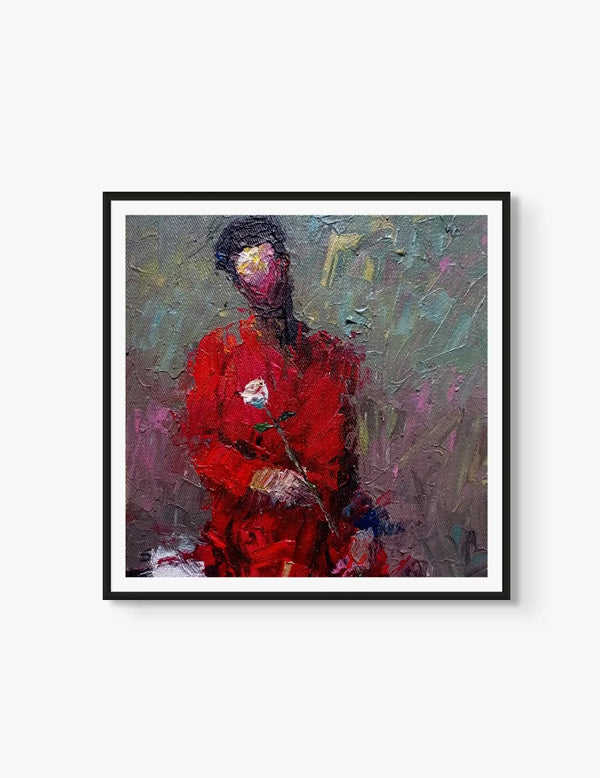In Conversation with the Artamine Founders

From left to right: Absera Gizaw and Elilta Gizaw
Celebrating African art "from tip to tip and coast to coast"
Artamine's Role in the Contemporary African Art Market
ARTAMINE EDITORIAL
Artamine founders, Absera and Elilta Gizaw, have always possessed a deep appreciation for art and a shared vision for elevating African creativity on a global stage. What began as a swirl of long, layered coffee chats about the scope and complexity of art from the African continent – from tip to tip, and coast to coast - eventually became Artamine. Artamine is a virtual art gallery redefining how African art is curated, represented, and appreciated worldwide. In this exclusive conversation, the Gizaw sisters take us through their journey, sharing the inspiration behind Artamine, their mission to support emerging African artists, balancing business and family, and their hopes for the future.
Sibling Synergy: The Artamine Founders in Creative Alignment
Being both sisters and business partners brings a dynamic mix of perspectives, strengths, and challenges. Fortunately for the sisters, their perspectives are complementary, creating a natural balance that guides their decisions. “We bring different things to the table,” says Elilta Gizaw, the younger sister. “Our personalities and life experiences complement each other, creating a balanced approach to decision-making. Surprisingly, we agree on almost everything. I didn't expect that starting out.”
“Really?” replies Absera Gizaw, the eldest of the two, laughing. “To be honest, I did not know what to expect starting out. But I did know the Millennial-Gen-Z thing would be a thing.” Elilta nods, grinning, “Yeah, I definitely knew that would be a thing: your digital skills show traits of a Gen-Z, though. Artamine has its very own Millennial Auntie Tech Support!” Despite the generational gap, the Gizaw sisters have found a rhythm that blends their strengths. “It’s a dynamic that works,” Absera says, “guiding us as we shape the vision of Artamine with balance and a shared sense of purpose.”
However, their alignment hasn’t meant the journey has been without obstacles. The desire to create a virtual art gallery that truly captured the scope and soul of African creativity pushed them forward, but the task at times felt daunting. With a vision as ambitious as Artamine’s – one rooted in intention, identity, and representation – the stakes were personal. As Ethiopian sisters who grew up in Amsterdam with London as a home base, the project wasn’t just about art; it was about bridging cultures and honouring where they come from. But as with any growing venture, building something meaningful alongside other demanding commitments required unwavering focus, late nights, and discipline.
One of the biggest challenges the Artamine founders faced was time allocation. Both sisters are involved in various ventures, Absera with a background in finance, and Elilta in law, ensuring Artamine received the attention it deserved required strategic planning. “The beauty of this challenge is that we’ve built a team of like-minded individuals who share our vision,” says Elilta, “Artamine is bigger than us, and that realisation keeps us motivated.”
The Meaning and Mission Behind "Artamine"

“One of the first questions people ask is, ‘What does Artamine mean?’” says Elilta, laughing. “Artamine (/ɑːr.təˈmiːn/) is an amalgamation of the words ‘art’ and ‘dopamine’,” explains Absera. “We understand that art may feel more intuitive to some than others. However, we sincerely believe that everyone experiences a sense of dopamine when they engage with a piece that resonates with them”. She continues, “We’re confident that when people encounter the artworks we feature, they’ll experience a sense of ‘artamine’ - that’s the feeling we want to evoke through our platform.”
Artamine is both a philosophy and an experience, expressed through different forms. From sight to sound, each manifestation is designed to create a continuous sense of ‘artamine’. “Music is everything to me”, Elilta reveals, “on Spotify, I regularly listen to a selection we curated with our team called ‘Artamine Sessions’. The sessions are playlists that express the mood of our collections (hues, vibrance and saturation) into music. To me, it's what Artamine would literally sound like”. For the Gizaw sisters, art from the continent flows fluidly across mediums, making the transition from sight to sound, art to music, instinctive.
The Inspiration Behind Artamine as a Virtual Art Gallery
Artamine did not emerge from a singular moment but rather through ongoing dialogue between the two sisters. Their upbringing, deeply rooted in cultural appreciation and a global perspective, shaped their passion for contemporary African art. “We were always surrounded by art in different forms, and particularly art from the continent,” Absera reflects. “From music to literature, paintings to sculpture, art was a part of life. When we were growing up, these art forms were vastly underrepresented on the global market. Fast forward years later, though, the art we grew to love started to leave marks on the global contemporary art scene. It’s amazing to see the rise of African art and how others now enjoy the vast pool of talent that Africa has to offer. That's where we come in: to amplify that positive effect.”
Artamine's mission is clear: to provide a platform that highlights African and diaspora artists, ensuring their stories are told authentically.
Artamine stands out in global contemporary art market trends through curating with clear intent, ensuring each piece is part of a larger narrative. The gallery doesn’t only display art; it tells stories with the artist’s voice at the forefront. “The artists we work with are visionaries in their own right,” says Elilta. “They bring forward unique perspectives, and it’s our job to ensure their work is presented in a way that does justice to their vision. In doing so, we maintain a close working relationship with the artists we feature.” The Gizaw sisters understand that representation is about visibility and creating meaningful economic opportunities for artists. Creating these opportunities on the continent would make a career in the arts seem viable, instead of unconventional or ‘out-of-the-box'.
Broader Cultural Narratives: The Complexity of Contemporary African Art

For the Artamine founders, the term “African art” is too broad to fully encapsulate the diversity and richness of art from the continent. “We’d rather stay away from the term 'African' as a one-size-fits-all moniker,” Absera explains. “We prefer terms that highlight the scope of art from the continent, which is why we believe in curation that is literally from tip to tip, and from coast to coast. At the same time, though, we hold close the use of ‘African’ when depicting its unifying power. There’s an unspoken sense of confidence and identity charged by that term. As Africans, we’re so different and yet so fundamentally alike. This unifying power comes from a shared sense of understanding, community and camaraderie.
When asked about a particular artist or piece that holds special meaning, the sisters hesitate, not wanting to play favourites. But after a moment, Elilta seems eager to share, “It has to be one of Fanuel Leul's pieces; it is a piece that will be dropped in a future collection. Not only am I a big fan of the Afrofuturistic themes in his work, but that particular work encapsulates a full circle moment for me. You'll see soon enough yourself,” she teases.
“Every artist we’ve worked with brings something special,” Absera says. “What excites us most is learning the stories behind each artwork, seeing how those narratives are reflected in the art, and watching collectors connect with the pieces in a deeply personal way.”
How the Artamine Founders Are Shaping the Global Contemporary Art Market
The Gizaw sisters believe Artamine will leave a lasting impact on how contemporary African art is understood, appreciated and curated. With her background in private equity, Absera Gizaw especially understands the great value Africa already offers the global market, and the art industry is no exception: “Art from the continent is no different in the value it contributes to the world”, she concludes.
Looking ahead, Artamine is set to expand its impact beyond art. The vision is to evolve into a broader platform that shapes the conversation around contemporary African art and cultures on a global scale. The sisters see Artamine as a cultural movement. By fostering a strong community of artists and collectors, they aim to redefine how African creativity is perceived and valued worldwide.
As the conversation comes to a close, one thing is clear: the Artamine founders have built more than a virtual art gallery. Artamine is a testament to the power of storytelling through art, and a bold step towards elevating African talent on a global stage.
YOUR NEXT READ
In Conversation with Helen Zeray

